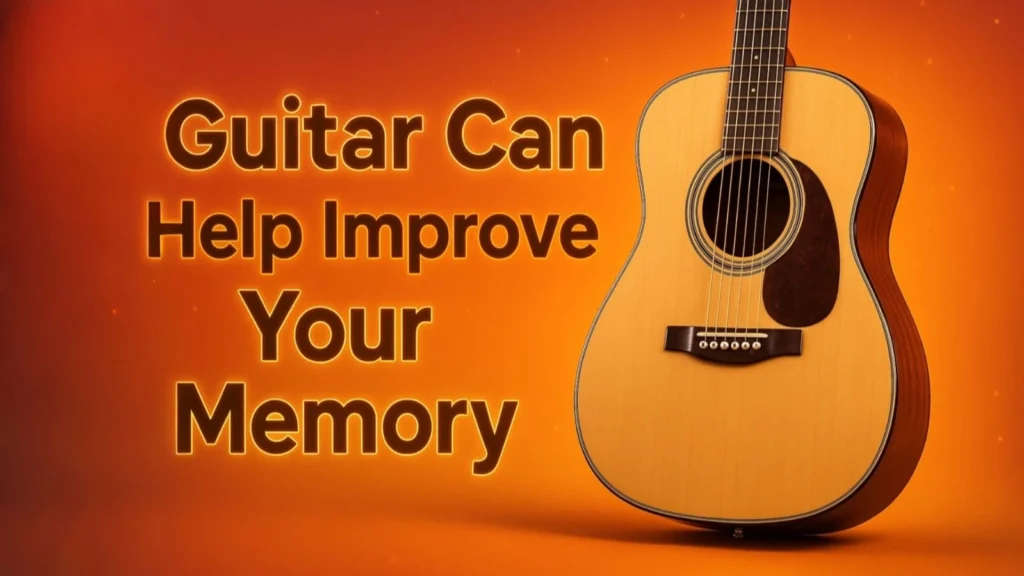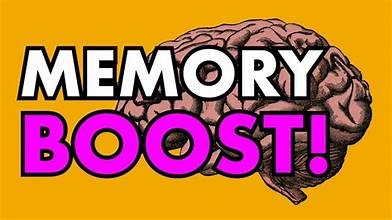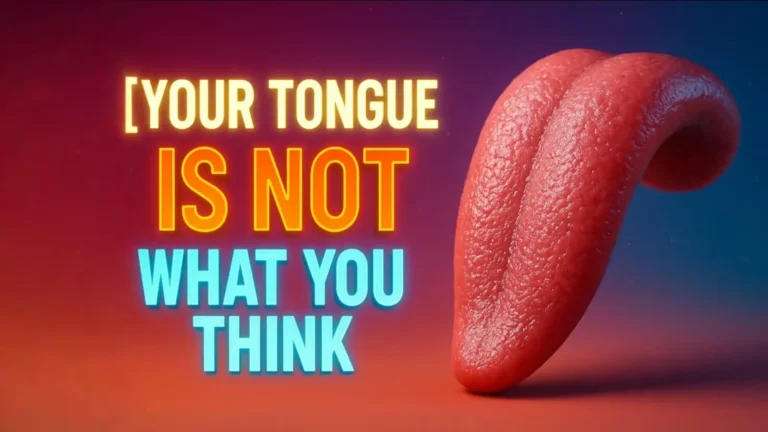
Hope you are fresh and fine, my brother/sister… Today we answer a cool question: Can a guitar really train your brain and improve memory? Short answer: Yes — and science keeps stacking up evidence. When you strum, your brain listens, reads shapes, times movement, tracks rhythm, remembers chord shapes, and responds to emotion. That is a lot of brain power in one simple habit.
If you want better recall for study, work, or daily life — or you just want a healthy hobby that keeps your mind sharp as you age — picking up a guitar is one of the best low-cost, high-fun brain workouts you can do at home.
Many people even type things like “5 facts about how guitars can help improve you memory” into Google. You are in the right place! Let’s give you clear, easy answers.
What you will get in this article
| Introduction |
| Quick Answer: Can Guitars Really Help Memory? |
| Why Music Lights Up the Brain |
| 5 Big Memory-Boost Facts (Overview) |
| Mini How-To: Start Playing Guitar for Brain Gains |
| Kids vs Adults: Does Age Matter? |
| Guitar Practice Habits That Support Memory |
| Common Mistakes That Waste Your Brain Gains |
| Conclusion |
| FAQ |
| End |
Quick Answer: Can Guitars Really Help Memory?
Yes. Playing guitar mixes sound, movement, timing, reading, and emotion. This combo activates wide brain networks linked to working memory, long-term memory, attention, and mood. Over time, practice can build new neural connections (brain plasticity), support recall, and may even help brains stay healthier with age. We’ll break down how.
Why Music Lights Up the Brain
Music is not processed in one tiny spot. When you make or hear music, the auditory cortex, motor system, limbic (emotion) areas, and memory regions like the hippocampus light up together. This whole-brain teamwork is why music feels powerful — and why it can act like a full-body workout for your mind.
Researchers studying music and memory in older adults, stroke recovery, and dementia care have found that musical activity (playing or singing) can help people retrieve old memories and even lay down new ones. Other work links musical training to improved verbal memory, attention, and cognitive resilience in aging. We turn that science into 5 simple facts you can use.
5 Big Memory-Boost Facts (Overview)

Below are the five core ways guitars support your brain:
- Multi-Sensory Brain Workout: Fingers, ears, eyes, timing — all fire at once.
- Practice Builds Procedural + Working Memory: Chords become automatic; brain space frees up.
- Emotion + Music Locks In Long-Term Memory: Songs tag memories with feeling.
- Focused Repetition Strengthens Attention Networks: Better focus helps memory stick.
- Lifelong Playing Supports Aging Brains: Musical engagement is linked to sharper minds in later life.
Let’s go deeper.
Fact #1: Multi-Sensory Brain Workout
When you fret a chord, you see a shape, feel string tension, hear notes, and time your strum. This cross-talk pulls in sensory, motor, and cognitive areas at the same time. Think of it as brain cross-training.
How It Helps Memory
Your brain builds networks faster when skills overlap. The repeated pairing of touch + sound + pattern helps you remember shapes and songs. Over time you form strong mental “maps” of fretboard positions. That is guitar improves memory in action.
Try This
- Say chord names out loud as you change.
- Close your eyes. Find the G chord by feel.
- Strum, then hum each note. Connect ear + finger = deeper memory.
For further reading please visit.
Fact #2: Practice Builds Procedural + Working Memory
At first, your brain works hard: “Index on 2nd fret… ring finger… strum…” With practice guitar daily, your fingers learn patterns. That frees working memory to handle rhythm, lyrics, or improvising.
Two Memory Types at Play
Procedural memory: Body remembers motions (like riding a bike).
Working memory: Short-term brain space used to hold and switch info (chord to chord to chord!).
Guitar drills — chord loops, scale runs, simple songs — move skills from effort to habit. Less mental load = more room for new memory tasks (notes, lyrics, timing).
Quick Practice Drill
- Pick 3 chords (G, C, D).
- Switch slow with clean sound.
- Add metronome.
- Add lyrics. Feel memory layers stack.
Fact #3: Emotion + Music Locks In Long-Term Memory
Have you ever heard an old song and instantly remembered a place, smell, or friend? That’s music and memory in real life. When music triggers emotion, the brain tags that moment. Emotional tags help long-term memory stick.
Guitar Angle
When you learn a song you love — maybe for someone special — your brain links emotion + sound + action. Play that song later and much of the memory returns.
Use Emotion on Purpose
- Dedicate each new song to a person or event.
- Journal one line: “I learned this riff when I visited Karachi.”
- Record yourself and replay during study breaks to refresh memory links.
Fact #4: Focused Repetition Strengthens Attention Networks
Learning guitar trains you to focus on small details — finger angle, timing, muting. That focus skill carries into reading, studying, and recall.
Attention and memory are partners. When you focus better, you encode better. Better encoding = easier recall later.
Focus Builder Routine (5 Minutes)
00:00–01:00 Tune by ear. Listen close.
01:00–02:00 Single-string picking on open strings. Even tone.
02:00–03:00 Slow chord change drill. Eyes shut.
03:00–04:00 Clap + count rhythm out loud.
04:00–05:00 Play full chord pattern with metronome.
Do this before study to wake up your brain.
Fact #5: Lifelong Playing Supports Aging Brains
Staying musically active through life is linked with slower cognitive decline, better hearing-in-noise skills, and maintained brain volume in some memory-linked regions. Even starting later in life helps. So yes — guitar for seniors cognitive support is real.
Why It Matters
Aging brains shrink in some areas. Musical engagement may help keep neural connections active (“use it or lose it”). Learning new songs challenges memory, hand control, timing, and emotion — a powerful combo for brain health.
Easy Start Plan for Older Beginners
- Use lighter strings to reduce finger pain.
- Short 10‑minute sessions, several times a day.
- Learn 1 two-chord song per week.
- Play along with favorite music from youth (emotional boost!).
Mini How-To: Start Playing Guitar for Brain Gains
You do not need to shred. Consistent, enjoyable practice is what helps.
Pick Your Guitar
- Acoustic: Simple, portable. Great for memory-linked chord work.
- Classical (nylon): Softer on fingers; good for seniors or kids.
- Electric: Low string tension; headphone practice = quiet nights.
First-Week Roadmap
Day 1: Learn parts of the guitar; tune.
Day 2: Em chord + strum downstrokes.
Day 3: Add G chord. Switch slow.
Day 4: Add Cadd9 (easy shape).
Day 5: 4-count strum loop Em–G–Cadd9.
Day 6: Say chord out loud before playing (reinforces guitar improves memory link).
Day 7: Record yourself. Celebrate!
Kids vs Adults: Does Age Matter?
Kids often pick up shapes fast. Adults bring focus, patience, and goals. Good news: brain plasticity music training happens at all ages. It may take adults a bit longer to build calluses, but memory gains still come with steady practice.
For Kids
- Use tiny goals: 1 chord = 1 sticker.
- Keep songs fun (cartoon themes).
- Pair practice with school facts (spell words on string numbers!).
For Adults
- Link songs to learning tasks. Practice a scale, then review flashcards.
- Use short, frequent sessions to beat time stress.
- Track progress in a notebook (boosts music and memory).
Guitar Practice Habits That Support Memory
Daily Mini-Sessions Beat Once-a-Week Marathons
Short, spaced practice improves retention.
Speak & Play Method
Say note names as you pick them. Hearing + speech + movement = deeper coding.
Loop + Layer
Loop a 4‑bar phrase. Each loop, add one element: rhythm, lyrics, dynamics. This challenges working memory and music timing.
Sleep on It
Practice before bed. Sleep helps the brain store motor and auditory memory.
Common Mistakes That Waste Your Brain Gains
| Mistake | Why It Hurts Memory | Quick Fix |
|---|---|---|
| Random noodling only | Weak pattern recall | Use 5‑minute focus drills |
| Never naming chords | No verbal tag = weak recall | Say names out loud |
| Skipping metronome | Poor timing memory | Use slow click daily |
| Long breaks | Memory fade | Short daily touch sessions |
| All speed, no feel | No emotional anchor | Learn songs you love |
Internal + External Resources (Link Suggestions)
Internal (Add once published on your site):
- [/music-brain-basics/] What Music Does to Your Brain
- [/easy-beginner-guitar-chords/] Learn 7 Chords Fast
- [/memory-hacks-students/] Study Memory Tricks That Work
External (Add authoritative links):
- Harvard Health: Music Can Boost Memory & Mood
- Johns Hopkins Medicine: Harnessing the Healing Power of Music
- Human Brain Mapping: Instrument Training Improves Verbal Memory (older adults)
- J. Neurosci.: Musical Training & Hippocampal Plasticity
- International Journal Geriatric Psychiatry (music engagement & cognitive aging)
(Add URLs when you post; I’ve listed source names to keep this draft clean.)
Conclusion
Playing guitar is more than a hobby. It is a brain habit that blends sound, movement, focus, and feeling — the perfect recipe to help memory. Whether you are a kid, student, busy parent, or retiree, short daily strums build skill and mental strength. The science behind music and memory keeps growing. Why not use it?
Your next move: Pick one chord. Play it today. Tomorrow, add one more. In weeks, you’ll hear songs. In months, you’ll feel sharper. In years, you may thank your guitar for protecting your mind.
If you start, come back and tell me how it goes!
FAQ
1. Does playing guitar really improve memory?
Yes. Guitar playing engages hearing, touch, movement, and timing. Repeating these together helps your brain store and recall patterns.
2. How much should I practice guitar for brain benefits?
Even 10 minutes a day helps. Short, steady practice is better for memory than one long session a week.
3. Am I too old to start guitar for brain health?
No. Adults and seniors still grow new brain links with learning. Start slow. Enjoy music you love.
4. What type of memory improves most?
Procedural memory (muscle memory) improves first. Over time, attention and recall of songs, lyrics, and patterns can also improve.
5. Can music therapy help people with memory loss or dementia?
Music often helps people recall names, events, and emotions even when other memory paths are weak. Adding simple guitar strums or rhythm can help connect and engage.







